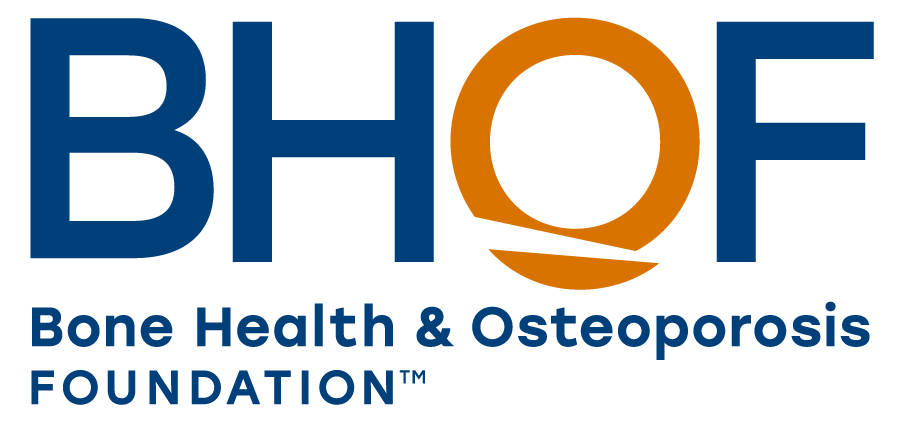Many nutrients play a role in bone health. Some nutrients have scientifically proven benefits, others may have benefits, but there is no research to back that up. Some nutrients are needed in such small amounts that people are rarely deficient in them and need not worry about getting enough. Focus on nutrients with solid scientific evidence of need and benefit. Read food and drink labels to ensure you are meeting your daily requirements.
The Bottom Line
With some exceptions, a balanced diet provides adequate nutrients for most people, eliminating the need to take most supplements.
Nutrients needed based on solid evidence—know your requirements
Calcium, vitamin D and magnesium are key bone health nutrients that require special attention to ensure that you meet your daily requirement.
Although many foods contain calcium, dairy products provide the most calcium per serving size. Calcium that has been added (fortified) to drinks may settle to the bottom, so shake the container well before drinking. Daily requirements for calcium change with age — people who do not eat dairy foods will need to work hard to meet them or may need a calcium supplement.
There are food sources of vitamin D, but it is difficult to get adequate amounts from food alone; therefore, many people benefit from a supplement.
People who consume even moderate amounts of alcohol or use proton pump inhibitors may have increased loss of magnesium in the urine and may benefit from a supplement (approximately 200–250 mg/day). Magnesium is found in many foods.
|
Nutrient* |
Bone Health Function |
Food Sources |
|
Calcium[1] |
If you do not get enough calcium through your food or supplements, your body will take the calcium it needs from your bones. |
Dairy (milk, cheese, yogurt); fortified foods (juices, cereals, almond, and soy milk); sardines or canned salmon with bones; tofu; dark green vegetables (collards, kale, broccoli, bok choy, okra); seeds (poppy, sesame, chia); almonds |
|
Vitamin D[2] |
Necessary for calcium to be absorbed in the intestine. |
Fatty fish (swordfish, salmon, sardines mackerel); fortified foods (dairy, cereal); egg yolks |
|
Magnesium[3] |
Allows for proper calcium and vitamin D regulation. |
Green vegetables (collards, kale, bok choy, okra); seeds (poppy, sesame, chia); nuts; legumes; whole grains; avocado |
Nutrients needed for bone health based on good evidence
In healthy adults, these nutrients can be readily found in a balanced diet; rarely would a supplement be required—unless directed by your health care provider.
|
Nutrient |
Bone Health Function |
Food Sources |
|
Phosphorus |
Part of bone mineral and important for neutralizing acidic foods that could otherwise be harmful to bone. |
Protein foods (soybeans, fish, meat, milk, eggs); legumes; whole grains |
|
Potassium |
Certain potassium salts neutralize acids that come from the body’s metabolic processes. |
Fruits; vegetables; scallops; beans; whole grains; squash |
|
Vitamin A |
Influences osteoblasts (bone-building cells) and osteoclasts (bone breaking down cells). |
Sweet potato; beef liver; spinach; carrots; cantaloupe; mangoes; fortified foods; eggs |
Nutrients with a possible relationship to bone health
These nutrients may have a role in bone health, but the evidence is not conclusive. In healthy adults, they can be readily found in a balanced diet.
|
Nutrient |
Bone Health Function |
Food Sources |
|
Zinc |
Mineralizes bone and stabilizes receptor proteins for vitamin D, protein synthesis. |
Shellfish; beef; pork; seeds; beans; whole grains; yogurt |
|
Vitamin B12 |
Appears to influence bone-building cells. |
Clams; liver; fish; fortified cereal; meat; dairy products; eggs; poultry |
|
Vitamin C |
Essential to collagen formation and Increases absorption of plant-based iron. |
Peppers; citrus; kiwi; broccoli; cauliflower; strawberries; Brussel sprouts; papaya |
|
Vitamin K* |
Low blood levels of vitamin K are associated with lower bone density and possibly increased fracture risk. |
Collards; turnip greens; spinach; kale; broccoli; natto; soybeans; carrot juice; canned pumpkin; okra; blueberries; grapes; carrots |
*Patients on blood thinners like warfarin (Coumadin) should be cautious eating foods or supplements with vitamin K.
Nutrients rarely causing bone health problems
You may hear of other nutrients when it comes to bone health, like boron, copper and silicon. These nutrients are found in many foods and are only needed in trace amounts. Deficiency rarely occurs unless you have intestinal absorption problems.
People Who Might Need Supplements
Supplements are not designed to replace food. If you had intestinal bypass surgery or have other malabsorption problems like celiac or Crohn’s disease, your health care provider will likely suggest supplements to stay healthy. Ask your health care provider if you should have a test to see whether you need a vitamin D supplement. If you cannot tolerate any dairy products, you may need a calcium supplement. If you do need a supplement, look for ones that have the USP symbol, meaning that they have been independently tested and certified to contain what is listed on the label.
References
[1] Committee to Review Dietary Reference Intakes for Vitamin D and Calcium, Food and Nutrition Board, Institute of Medicine. Dietary Reference Intakes for Calcium and Vitamin D. Washington, DC: National Academy Press, 2010.
[2] Institute of Medicine, Food and Nutrition Board. Dietary Reference Intakes for Calcium and Vitamin D. Washington, DC: National Academy Press, 2010.
[3] Rude RK. Magnesium. In: Ross AC, Caballero B, Cousins RJ, Tucker KL, Ziegler TR, eds. Modern Nutrition in Health and Disease. 11th ed. Baltimore, Mass: Lippincott Williams & Wilkins; 2012:159-75
Posted: 05/16/2017; Revised: 02/19/20.
As a service to our readers, American Bone Health provides access to our library of archived content. Please note the date of the last review on all articles. No content on this site, regardless of date, should ever be used as a substitute for direct medical advice from your doctor or other qualified clinician4/11/19

